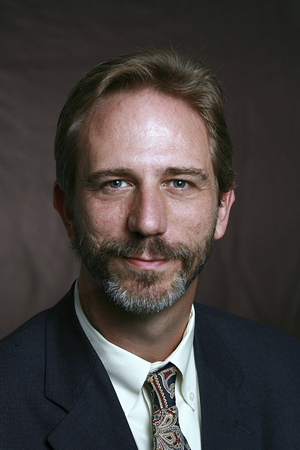By Ken Camp
 How can pastors preach on subjects like gun violence without disturbing the peace in their own congregations?
How can pastors preach on subjects like gun violence without disturbing the peace in their own congregations?
“Pastors always tread the tightrope of a prophetic role and that of pastoral care,” said Terry Rosell, ethicist and professor of pastoral theology at Central Baptist Theological Seminary in Kansas City, Kan.
Rosell said on any issue on which congregants are not in one accord, it is necessary to exercise virtues of prudence, empathy, humility and courage.
Prudence means some times are better than others to address controversial matters. Sensitivity to the people in the pew should guide sermon preparation, he noted.
 “Empathically, I understand that this issue in particular is experienced differently by the congregant who is 26 years old and relatively unscathed by evil and the congregant who is a 66-year-old decorated veteran who also lost a daughter to a murderous intruder,” Rosell said.
“Empathically, I understand that this issue in particular is experienced differently by the congregant who is 26 years old and relatively unscathed by evil and the congregant who is a 66-year-old decorated veteran who also lost a daughter to a murderous intruder,” Rosell said.
“In humility, I recognize that I have been mistaken on any number of moral matters before and could be so yet again.”
Some suggest that preachers ask whether sermons should focus on political opinions or instead lay a foundation of biblical principles and leave it to church members to make up their own minds.
“Gun control may not be an appropriate subject for the pulpit, where proclamation of the gospel and application of the gospel belong,” said Roger Olson, the Foy Valentine Professor of Christian Theology and Ethics at Baylor University’s Truett Theological Seminary in Waco, Texas.
“The pulpit is a place for tackling larger issues of which gun control may be part, such as whether preparing to do violence is a good idea for a Jesus-follower.”
Pastors sometimes must address controversial issues if they are true to their calling, but they should do it in the context of serious biblical reflection and caring pastoral ministry, some ethicists and ministers suggest.
“I fear that today’s pastors have gone silent about any issue that Christians disagree about, which pretty much rules out all substantive preaching,” said David Gushee, distinguished university professor of Christian ethics at Mercer University in Macon, Ga.
 “Instead, I believe it is possible for the pastor to weave in commentary or sermons about moral/political issues as part of a balanced diet in all kinds of preaching. This can work if the congregation sees the pastor wrestling honestly with all kinds of issues, showing his or her work biblically and ethically, avoiding politically charged slogans or propagandistic formulations, and offering all of this in the context of a solid overall pastoral ministry. But this is no easy task in today’s divided and polemical culture.”
“Instead, I believe it is possible for the pastor to weave in commentary or sermons about moral/political issues as part of a balanced diet in all kinds of preaching. This can work if the congregation sees the pastor wrestling honestly with all kinds of issues, showing his or her work biblically and ethically, avoiding politically charged slogans or propagandistic formulations, and offering all of this in the context of a solid overall pastoral ministry. But this is no easy task in today’s divided and polemical culture.”
Pastors have an obligation to tackle tough subjects from the pulpit, but first, they should have the grace and courage to discuss those issues with church members — not just preach at them, an East Texas pastor suggested.
“I think pastors must preach on controversial topics like gun control and gun violence,” said Kyle Childress, pastor of Austin Heights Baptist Church in Nacogdoches, Texas. “But the essential is that a good pastor is also among his or her congregation during the week, sitting around a coffee table, sitting on the porch, sharing lunch … listening to members of the congregation — especially those who disagree.”
“In the informal setting of friendship in Christ, pastor and church member can listen to one another, talk, disagree and talk some more,” Childress said. “It is out of such conversations, along with study and prayer, that pastors can stand up in the pulpit and preach on hot topics.”
“A pastor needs to spend six days a week listening in order to preach for 20 minutes on a Sunday morning,” Childress said.
Related New Voice features:
